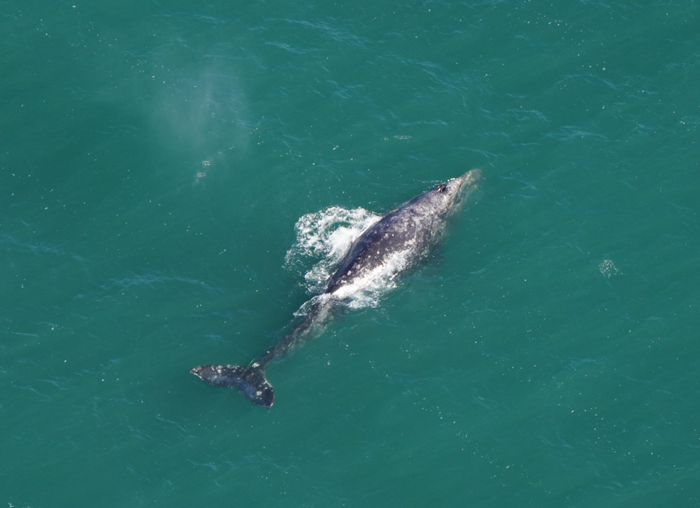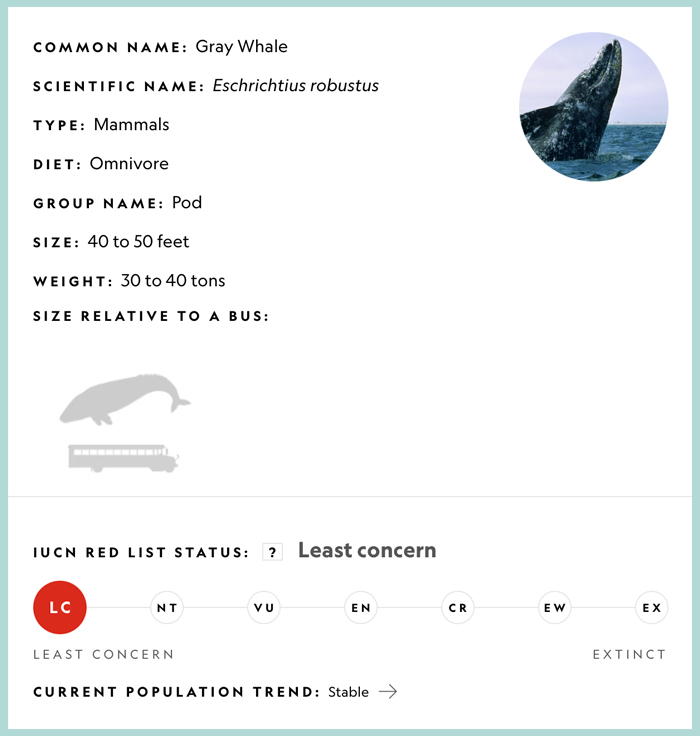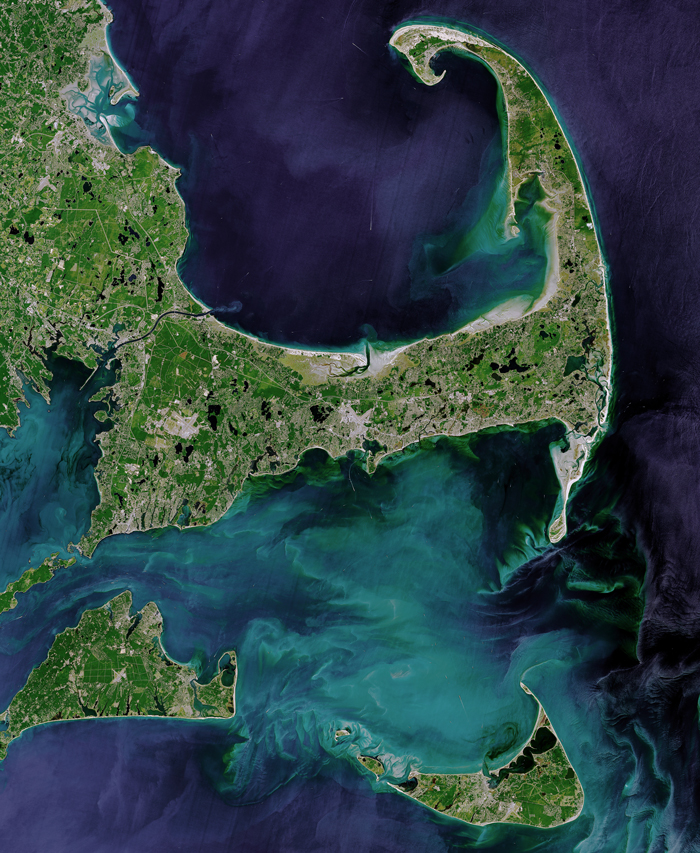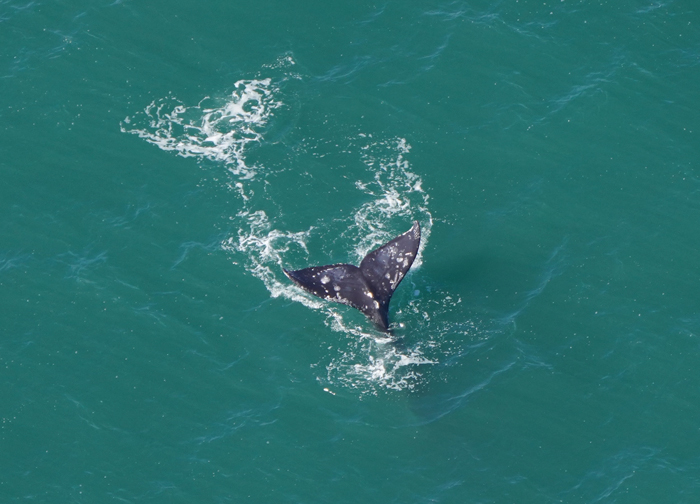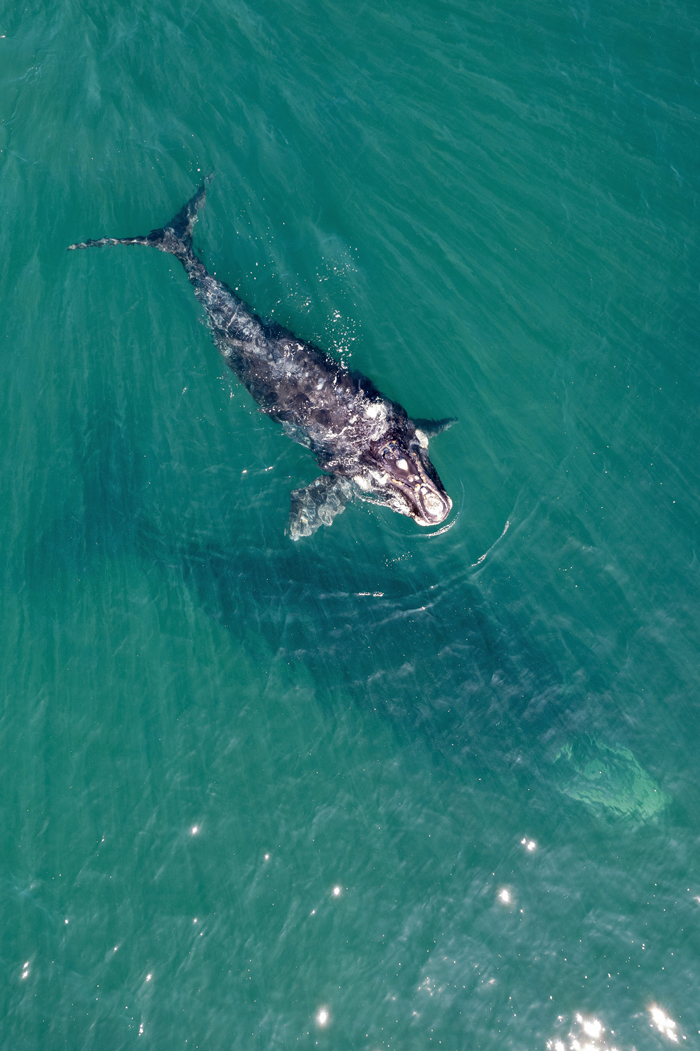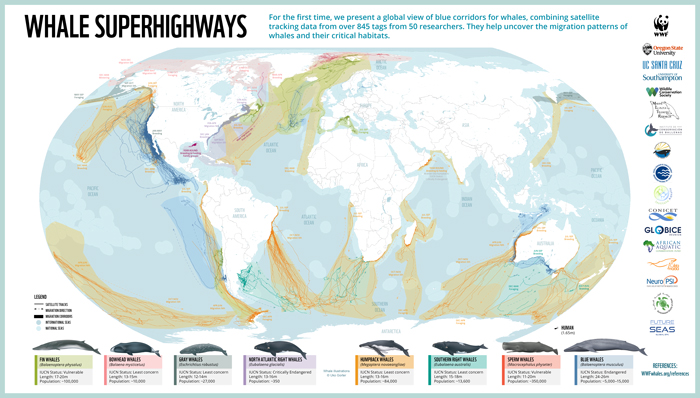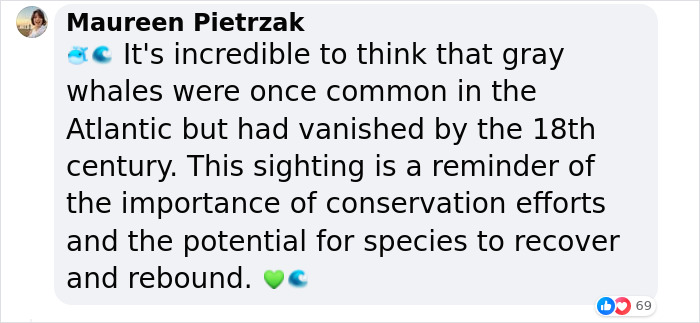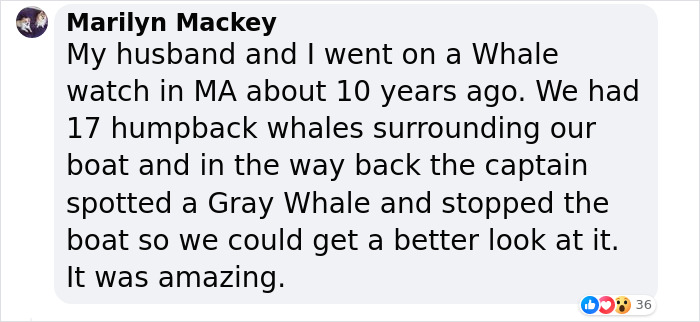More info: New England Aquarium
The sighting marks the 5th documented observation of a gray whale outside the Pacific Ocean in the last 15 years
Share icon Image credits: New England Aquarium
Gray whales are named for their distinctive gray and white patterning, which is unique to each individual
Share icon Image credits: nationalgeographic.com The New England Aquarium scientists believe the gray whale that was seen off New England this month could be the same whale sighted in Florida late last year.
The map shows where the gray whale was spotted
Share icon Image credits: wikipedia.org
The aerial survey plane circled the area for 45 minutes, allowing observers to capture additional photos
Share icon Image credits: New England Aquarium “I didn’t want to say out loud what it was, because it seemed crazy,” said Orla O’Brien, associate research scientist in the Anderson Cabot Center for Ocean Life at the New England Aquarium. She has been flying aerial surveys since 2011. During the time when the whale was on a dive, the scientist showed the photos to her colleague, Research Technician Kate Laemmle, who was also in the plane. “My brain was trying to process what I was seeing, because this animal was something that should not really exist in these waters,” said Laemmle. “We were laughing because of how wild and exciting this was—to see an animal that disappeared from the Atlantic hundreds of years ago!”
The gray whale was spotted just 30 miles south of Nantucket, Massachusetts
Share icon Image credits: Jon Mezzadri Scientists believe that this thrilling yet unusual discovery has been driven by climate change. Partly due to rising global temperatures, The Northwest Passage, which connects the Atlantic and Pacific through the Arctic Ocean in Canada, has regularly been ice-free in the summertime in past several years. Usually the extent of the sea ice limits the species range of gray whales: as the whales cannot break through the strong winter ice that usually blocks the Passage. Yet now the lack of ice has given these giants the space to pass through that wouldn’t have been possible in the previous century.
Scientists are thrilled to see the gray whale, but pointing to climate change
Share icon Image credits: Markus Spiske “This sighting highlights how important each survey is. While we expect to see humpback, right, and fin whales, the ocean is a dynamic ecosystem, and you never know what you’ll find,” O’Brien said. “These sightings of gray whales in the Atlantic serve as a reminder of how quickly marine species respond to climate change, given the chance.” “Perhaps the most serious stress on the oceans today comes from our dominant way of producing energy. <..> As the stress on the climate’s heart increases, it is ‘beating’ irregularly, and long-standing weather patterns are shifting,” mentioned one article about “Climate Change and the Ocean” on The New England Aquarium’s website.
The New England Aquarium has protected and cared for ocean and marine animals for already more than 50 years
Share icon Image credits: New England Aquarium The gray whale could be considered one of the animal kingdom’s greatest migrators. Traveling in groups, some of these giants can reach 12,430 miles round-trip from their summer home in Alaskan waters to the warmer waters off the Mexican coast. These very long journeys are hiding big challenges along the way, and climate change isn’t the only problem here.
The gray whale is one of the animal kingdom’s greatest migrators
Share icon Image credits: Ivan Stecko An estimated 300,000 whales, dolphins and porpoises are killed each year as a result of fisheries’ bycatch, in addition to other threats, including increasing ship traffic and loss of critical habitats. In response, in 2020, WWF launched the Protecting Whales and Dolphins Initiative – a global conservation program to equip experts, industry, policymakers and governments with tools to respond to these threats and solutions to safeguard these ocean giants for future generations. Later on, in 2022, WWF for the first time presented a global view of blue corridors for whales, combining satellite tracking data from over 1000 tags from 50 researchers. The science community was calling for an urgent action to safeguard whales amid mounting threats along their migratory routes.
Protecting Blue Corridors has for the first time visualized the satellite tracks of over 1000 migratory whales worldwide
Share icon Image credits: WWF The incredibly rare event marked by the New England Aquarium aerial survey by sighting a gray whale off the New England coast reminds us how urgently important it is to maintain the ocean’s health. We all have this responsibility, therefore we can learn more about the changing climate, what the New England Aquarium and others are doing to make a positive difference, and how we can all act together to protect the blue heart of our planet Earth.
People couldn’t hold back their thoughts about this unusual discovery
Share icon Share icon Share icon Share icon Share icon Share icon Share icon Share icon Share icon Share icon Share icon Anyone can write on Bored Panda. Start writing! Follow Bored Panda on Google News! Follow us on Flipboard.com/@boredpanda!
